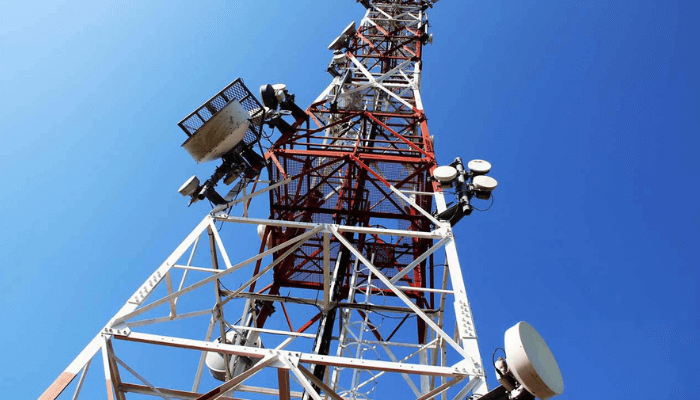Stakeholders in Nigeria’s telecommunications sector have projected that fully digitized public services could generate over $110 billion annually for the country by reducing inefficiencies and enhancing transparency in governance.
The estimate, underscores the critical role of public-private partnerships (PPPs) in unlocking economic gains through robust digital infrastructure and interoperable systems.
Stakeholders at the 7th Nigeria e-Government Summit, held in Lagos on Thursday, convened by Engr. Lanre Ajayi, executive chairman of DigiServe Network Services, emphasize trust, interoperability, and innovation as key pillars for effective e-government service delivery.
Ajayi, in his opening address, highlighted the summit’s seven-year legacy of fostering collaboration between government and private sectors, showcasing pilot projects that have slashed service delivery timelines, reduced costs, and elevated citizen satisfaction.
“We have built a vibrant platform that fosters trust, transparency, and practical collaboration,” he said, pointing to past successes like policy reforms and procurement pathways that have informed government strategies.
Read also: NCC reforms to propel telecom’s 22% GDP goal – Report
This year’s summit featured strategic keynotes, deep-dive discussions on digital identity and data security, and a matchmaking corner to spark new partnerships between government officials and service providers.
The $110 billion figure, cited by Vincent Olatunji, CEO of the Nigeria Data Protection Commission (NDPC), underscored the economic stakes. “Government could gain over $110 billion per year from reduced leakage in public spending and tax collection,” Olatunji said, citing examples like the Independent Corrupt Practices Commission (ICPC) recovering billions through digital tracking and the Treasury Single Account saving over 10 trillion Naira since its inception.
He stressed that data privacy is critical to building public trust, warning that without robust protections, citizens may shy away from digital services. “Without privacy, we cannot achieve the e-government of our dream,” he added, advocating for lawful data collection and user consent mechanisms.
Despite the optimism, speakers acknowledged challenges, including Nigeria’s 144th ranking on the UN’s e-Government Development Index, a digital divide exacerbated by low literacy and poor infrastructure, and cybersecurity threats targeting public sector data.
Olatunji cited a 2022 report noting that one-third of African organizations faced cyberattacks, underscoring the need for robust protections.
Engr. Kunle Olorundare, representing the Internet Society Nigeria Chapter, echoed the call for collaboration, emphasizing the Internet’s role as a force for social and economic good. He urged stakeholders to address cybersecurity and digital inclusion to ensure equitable access to e-government services. “The monumental task of building Nigeria’s digital future is a collective responsibility,” Olorundare said, pledging ISOC’s support for policies promoting open and secure Internet access.
Tony Izuagbe Emokpere, representing the Association of Telecommunications Companies of Nigeria (ATCON), highlighted the telecom sector’s pivotal role in providing the infrastructure backbone for e-government. “No government can deliver efficient citizen-centered services in isolation,” he said, pointing to partnerships that have enabled seamless online access to services like digital identity and payment systems.
ATCON committed to bolstering broadband penetration, which has risen from 40 percent to 48 percent in recent years, to support Nigeria’s digital economy.
Adesola Akinsanya, president of the Nigeria Internet Registration Association (NiRA), emphasized the role of the .ng domain in strengthening Nigeria’s digital identity. “Collaboration with private sector players provides access to innovations that accelerate service delivery,” he said, citing the Corporate Affairs Commission’s progress in online business registration as an example of successful PPPs.
Akinsanya called for greater adoption of .ng domains to enhance trust and authenticity in digital governance.
The Nigerian Communications Commission (NCC), represented by Tunji Jimoh, outlined ambitious plans to expand broadband access and introduce an industry-wide cybersecurity framework. Jimoh noted that 11 states have waived right-of-way charges, unlocking faster fiber rollout, while the Universal Service Provision Fund is connecting rural schools and healthcare facilities. “Digital exclusion is the new poverty,” he said, stressing the NCC’s commitment to universal access and secure networks.
He also highlighted the Nigeria Governors’ Forum’s digital readiness tool, which assesses states’ capacity for e-government deployment.
Engr. Abisoye Coker-Odusote, director general of the National Identity Management Commission (NIMC), described digital identity as the central nervous system of e-governance. “You cannot have an e-government without an e-citizen,” she said, emphasizing the National Identification Number (NIN) as the key to a seamless digital ecosystem.
Coker-Odusote called for deeper collaboration with private sector innovators, banks, and telecoms to eliminate silos and reduce fraud, citing the NIN-enabled disbursement of N24 billion in conditional cash transfers as a success story.
Falilat Jimoh, representing NITDA’s Kashifu Abdullahi Inuwa, stressed the importance of the Nigerian e-Government Interoperability Framework to unify digital platforms. “Instead of digital silos, we are building a single, citizen-oriented platform,” she said, noting NITDA’s efforts to mainstream cloud governance and cybersecurity.
Jimoh highlighted Nigeria’s youthful population, (over 230 million, with a significant portion under 30) as a driving force demanding accessible digital services like online tax payments and business registration.









